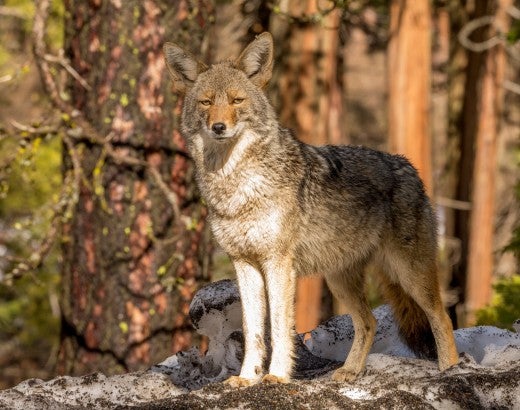The Humane Society of the United States has been working to reduce and humanely resolve human-wildlife conflicts in urban areas for over three decades, and during this time – as development and urbanization have grown apace -- we have seen incidents continue to increase. Wild animals displaced by development have nowhere to go, and the fact is, they frequently do not go anywhere because they can easily adapt to the urban environment, which has plenty of the resources they need to survive, like food and denning and nesting sites.
But when people find a wild animal, like a raccoon or a squirrel, in their backyard or in their attic, many times the first reaction is to get the animal out by whatever means necessary. Each year, millions of wild animals are unnecessarily killed with traps and other cruel methods in misguided and ineffective attempts that don’t address the root causes of conflicts between people and wildlife. And usually, the first call people make when they come across a wild animal in their backyard or on their roof is to the local animal care and control agency.
Animal care and control agencies can do enormous good for wild animals even though wildlife may not be their primary focus, and giving these first responders the tools to deal with these crises in a humane manner is key. That is why we began our Wild Neighbors program, with the goal of helping communities and animal care and control agencies better address wildlife conflicts in humane and effective ways. As part of the program, we work with community leaders and animal care and control agencies to provide training, consultation and resources that address the challenges of human-wildlife conflicts. In the short time since it was announced, the program has already crossed a milestone of 100 pledges from agencies across the United States.
To qualify for the program, an agency has to meet at least one of three criteria that we believe -- based on our work resolving human-wildlife conflicts over the years -- are the most effective in reducing unnecessary suffering of wildlife and unnecessary burdens on agencies. This includes agreeing to use only humane solutions and not trapping or euthanizing healthy wildlife for nuisance reasons, not loaning out traps to the public to trap and remove wildlife from in and around a dwelling, and not automatically euthanizing species that can carry rabies, like bats, unless human or domestic animal exposure cannot be ruled out.
“We have already received some great feedback from agencies that have taken the pledge and utilized our wildlife resolution resources and training about how impactful it has been for their agency and their community. It is truly heartening to see the growing enthusiasm among those who directly address wildlife-human conflicts to leave behind cruel, outdated methods of wildlife control and resolve conflicts in more humane ways,” says John Griffin, Senior Director of Urban Wildlife Programs at the HSUS.
As the human population grows and development continues, human-wildlife conflicts will continue to increase too. Add to that the fact that our homes and buildings are not usually designed to keep animals out, that there is a lack of regulatory oversight for the way wild animals are controlled, and there is a scarcity of good, comprehensive information and responses to conflicts with wildlife, and you have a problem that will continue to repeat itself year after year. One of our goals with the Wild Neighbors program is to create a comprehensive toolkit that every agency can implement, and some of our resources are already available on AnimalSheltering.org.
If you represent an animal care and control agency, shelter or another agency or group that responds to the community on wildlife issues, we invite you to sign our Wild Neighbors Pledge and join the growing number of agencies across the country that have committed to making their communities a friendlier place for wildlife. After signing the pledge, you will receive our Humane Wildlife Conflict resolution guide (a comprehensive manual for humanely responding to the public’s wildlife concerns), access to our wildlife training webinars, and an eye-catching sign to place in your shelter or agency’s window that announces your signing of the pledge and commitment to protecting wildlife. And for more information about the Wild Neighbors program and learning how to resolve conflicts with our wild neighbors with compassion, please write to us at wildneighbors@humanesociety.org.



